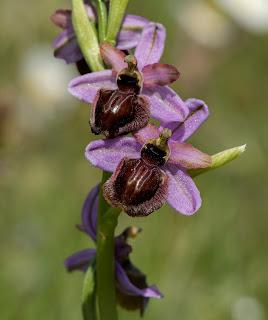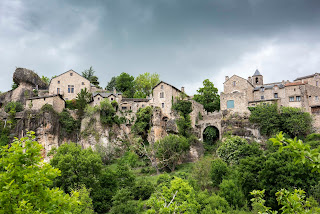Wildflower days around Coniston , South Lakes. TARN HOWS
Tarn Hows is just about 1.5miles northeast of Coniston. It is one of the most popular tourist destinations in the area with over half a million visitors every year. It is managed by the National Trust.
The Tarn Hows area originally contained 3 much smaller tarns. The Marshall family of Monk Coniston gained full possession of all the land in 1862 and embarked on a series of landscaping developments. These included expanding the tree plantations and constructing a dam to create the larger tarn we see today.
Beatrix Potter bought the estate from the Marshall Family before selling it to the National trust in 1930.
Tarn Hows was designated a Site of Special Scientific Interest (SSSI) in 1965.
The path around the Tarns is a very manageable 2 miles, suitable for baby buggies and wheelchairs as well as walkers.
This is probably one of the most beautiful man-made spots in the country and can be very busy but if you pick your time carefully you can have it all to yourself .
From Coniston village there are a number of routes up to Tarn Hows, all of them worth giving a go. For wild flowers.....each has something to offer, depending on the time of year.
The walk up Tom Ghyll from the car park at Glen Mary is especially good for fungi....as is the walk around the Tarns.
But rather than describe all routes up in detail I will list the most popular ones and reference which route is best for the illustrated flowers......hope that makes sense.
Route 1
Take the path through Yewdale Woods, cross the road to Low Yewdale and follow the sign to Tarn Hows .....across the field and up through the woods to Tarn Hows Cottage.Walk past the cottage to meet the road and follow that up to the Tarns
Route 2
Take the path through Yewdale Woods and instead of turning right to LowYewdale, carry on until you meet the road signed Tilberthwaite. Cross over this road in the direction of Hodge Close. Immediately after crossing the bridge, turn right through a gate and follow the track to Yewtree Farm. Cross the road and take the style into the field....turn left and follow the path to Glen Mary Car Park. Follow the signs to Tom Ghyll and Tarn Hows.
Route 3
Walk along the footpath that runs alongside the road to Hawkshead and follow the signs to Tarn Hows...easy-peasy.
The Tarn Hows area originally contained 3 much smaller tarns. The Marshall family of Monk Coniston gained full possession of all the land in 1862 and embarked on a series of landscaping developments. These included expanding the tree plantations and constructing a dam to create the larger tarn we see today.
Beatrix Potter bought the estate from the Marshall Family before selling it to the National trust in 1930.
Tarn Hows was designated a Site of Special Scientific Interest (SSSI) in 1965.
The path around the Tarns is a very manageable 2 miles, suitable for baby buggies and wheelchairs as well as walkers.
This is probably one of the most beautiful man-made spots in the country and can be very busy but if you pick your time carefully you can have it all to yourself .
 |
| Sunset at Tarn Hows |
From Coniston village there are a number of routes up to Tarn Hows, all of them worth giving a go. For wild flowers.....each has something to offer, depending on the time of year.
The walk up Tom Ghyll from the car park at Glen Mary is especially good for fungi....as is the walk around the Tarns.
But rather than describe all routes up in detail I will list the most popular ones and reference which route is best for the illustrated flowers......hope that makes sense.
Route 1
Take the path through Yewdale Woods, cross the road to Low Yewdale and follow the sign to Tarn Hows .....across the field and up through the woods to Tarn Hows Cottage.Walk past the cottage to meet the road and follow that up to the Tarns
Route 2
Take the path through Yewdale Woods and instead of turning right to LowYewdale, carry on until you meet the road signed Tilberthwaite. Cross over this road in the direction of Hodge Close. Immediately after crossing the bridge, turn right through a gate and follow the track to Yewtree Farm. Cross the road and take the style into the field....turn left and follow the path to Glen Mary Car Park. Follow the signs to Tom Ghyll and Tarn Hows.
Route 3
Walk along the footpath that runs alongside the road to Hawkshead and follow the signs to Tarn Hows...easy-peasy.
 |
| Nuphar lutea, Yellow waterlily June to August on the Tarns |
 |
| Nymphaea alba, White waterlily June to September on the Tarns |
 |
| Teucrium scorodonia Route 1 |
 |
| Achillea millefolium, Yarrow June to August Route 1 |
 |
| Dactylorhiza purpurella, Northern Marsh Orchid June to July By the Tarn |
 |
| Dactylorhiza maculata , Heath Spotted Orchid June to July Around the Tarn |
 |
| Dactylorhiza maculata Jne to July Around the Tarn |
 |
| Galeopsis tetrahit, Common hemp nettle July to September Route1 |
 |
| Calystegia sepium, Hedge Bindweed July to September Route1, 3 |
 |
| Succisa pratensis, Devil's-bit Scabious July to November On the grassy slopes that lead down to the Tarn |
 |
| Primula vulgaris, Primrose March to May Route 1, 2 |
 |
| Dactylorhiza maculata, Heath spotted Orchid June to July Around the edges of the Tarn |
 |
| Iris pseudacorus, Yellow Iris May to July At the margin of the water at the northern end of the Tarn |
 |
| Narcissus pseudonarcissus, Wild daffodil March to April Route 1, and at the Southern end of the Tarn |
 |
| Langdale Pikes from the southern end of the Tarn |
 |
| Southern end of the Tarn where the Devil's- bit Scabius grows |
 |
| Silene diocia, Red Campion April to October Route1, 2 and 3 |
 |
| Circaea lutetiana, Enchanter's nightshade June to August Route 1 |
 |
| Euphrasia, Eyebright May to September Route 1 |
 |
| Allium ursinum, Ramsons April to June Route1, 2, 3 |
 |
| Vicia sepium, Bush vetch April to October Route 2, 3 |
 |
| Larch flowers Around the Tarn |
 |
| Tussilago farfara, Coltsfoot February to April Route1, 2, 3 |
 |
| Add caption |
 |
| Caltha palustris, Marsh marigold March to June The margins of the Tarns |
 |
| Cardamine pratensis, Cuckooflower March to June Route1, 2, 3 |
 |
| Primula veris, Cowslip April to May Overlooking the Tarn |
 |
| Hyacinthoides non-scripta, Bluebells Route1, 2 |
 |
| water droplets on moss |
 |
| Lycopus europaeus, Gypsywort July to September Route1 |
 |
| Sanguisorba officinalis, Great burnet Route 3 |
 |
| Epilobium hirsutum, Great willow herb July to September Route3 |
 |
| Campanula rotundifolia, Harebell July to September Route 1 |
 |
| Stachys palustris, Marsh woundwort June to September Route1 |
 |
| Cymbalaria muralis, Ivy-leaved toadflax May to September Route 1, 3 |
 |
| Senecio, Ragwort |
 |
| Sorbus aucuparia, Rowan |
 |
| Achillea ptarmica, Sneezewort June to September around the Tarn |







Comments
Post a Comment